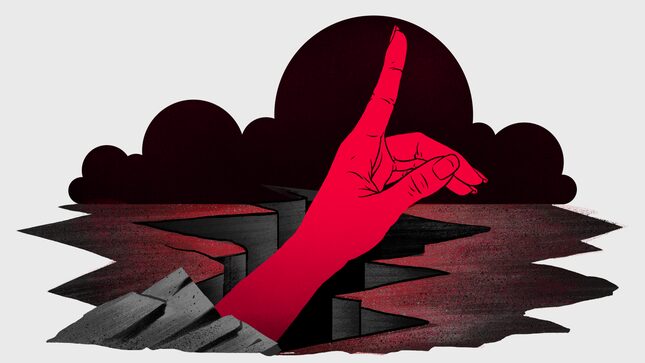Advice for the End of the World: Simulations, Flesh-Eating Bacteria, and the Meaning of Happiness
Latest
Illustration: Jim Cooke
For former Jezebel staffer Ellie Shechet, it is nearly always time to freak out. Doom—personal, professional, planetary—awaits, beckoning at the wings. No one has exactly asked for her advice, but we gave her a column anyway. Advice for the End of the World is a limited edition advice column for catastrophic thinkers, by a catastrophic thinker, in a time of looming catastrophe. Here are her thoughts.
Ellie! Help!
How much of a threat is flesh-eating bacteria?
Judging by the sheer number of headlines on my Google News search, it is so much a threat. Could not be more of a threat. Can I go one hour without hearing about flesh-eating bacteria? I think not. It is interesting and horrible, the thought that the planet, in her rage, is eating us alive.
Luckily, Alex Harris at the Miami Herald recently reported on this, so here’s the basic scoop. We’re generally talking about two things: Vibrio vulnificus, the actual “flesh-eating bacteria,” which emerges in salt water, and Naegleria fowleri—the “brain-eating amoeba”—which hangs out in fresh water. They both like heat, and climate change is making the water warmer; hence, cases are increasing, though both are still highly rare.
The flesh-eating bacteria has a mortality rate of about 25 percent, treatable with “hardcore” antibiotics. There were 92 cases in 2018 and 2019, and 20 people died. The brain-eating amoeba has a mortality rate of… uh… about 97 percent, but it is very preventable: just hold your nose in warm freshwater (it doesn’t hurt to drink it). And it is, again, incredibly rare, which is partly why it draws headlines; the scarcity of cases is also why it’s hard to treat. Worrying about getting a brain-eating amoeba is like “worrying about falling into a volcano,” The Atlantic’s Haley Weiss wrote.
So the threat is small, but it’s definitely not, let’s say, low-key. When asked by the Miami Herald if Vibrio actually eats your flesh, a public health professor replied:
“Short answer, yes. Long answer, define eating,” Rusk said.
Great. And the brain-eating amoeba?
-

-

-

-

-

-

-

-

-

-

-

-

-

-

-

-

-

-

-

-

-

-

-

-

-

-

-

-

-

-

-

-

-

-

-

-

-

-

-

-








































